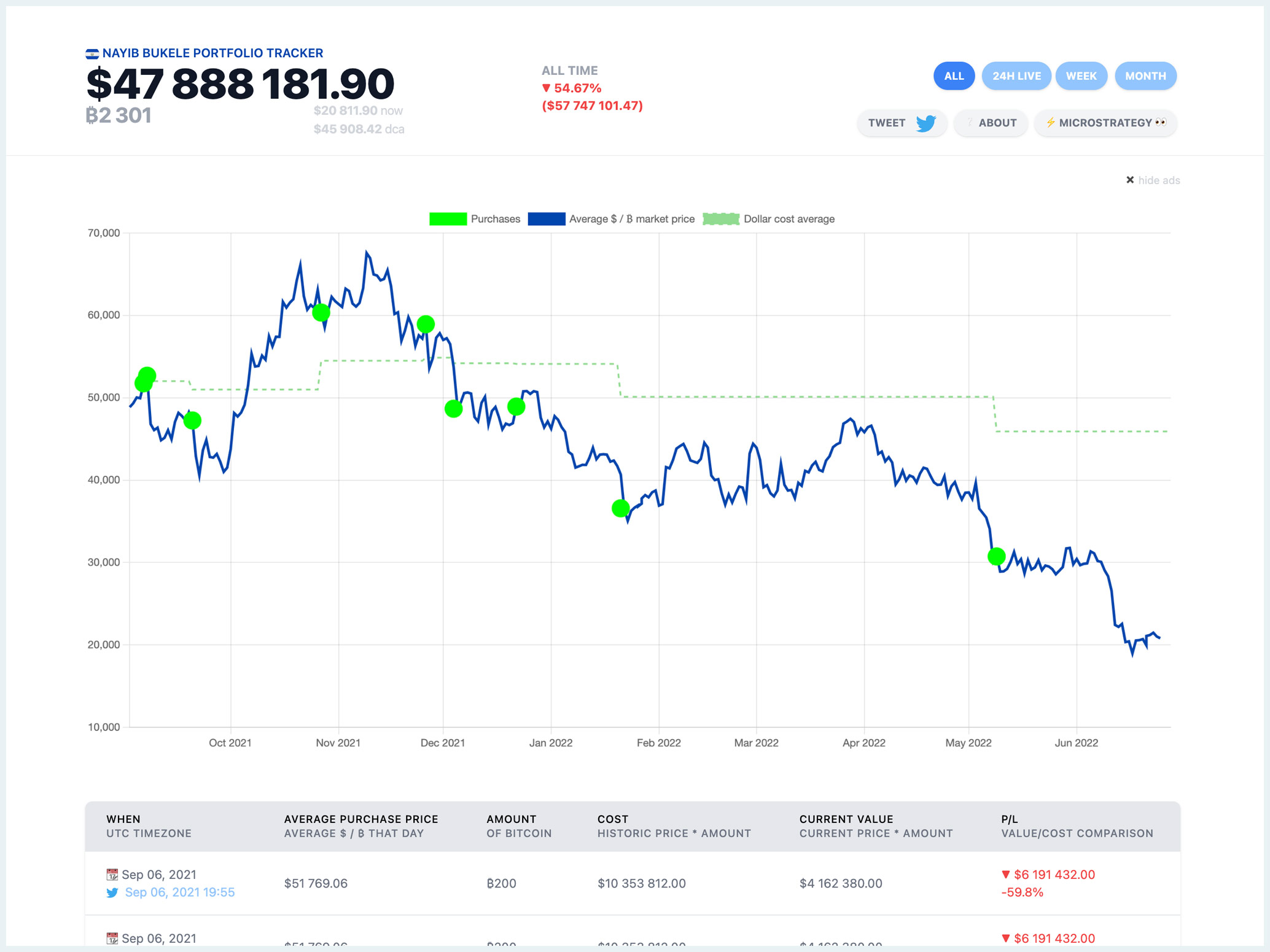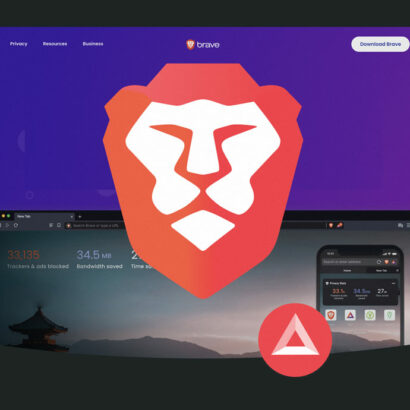Has Bukele’s Bitcoin Experiment in El Salvador Failed?
Well, it’s been more than a year since El Salvador began to accept Bitcoin as legal tender.
And so far, it has not brought about a crypto utopia. It has greatly increased the amount of tourists that visit however.
As many will recall, the country officially adopted Bitcoin to reduce the cost of overseas remittances and its charismatic president/dictator, Nayib Bukele, began buying up Bitcoin with public funds.
Since then the country has rolled out a Bitcoin wallet that doesn’t really work, which runs on the Algorand blockchain to process Bitcoin transactions.
Many locals have run into issues with the country’s wallet, called the Chivo app. Meanwhile, the volcano bond is a mess that continues to be delayed.
Looking back on the past year, has the Bitcoin experiment failed?
Adoption in El Salvador
The pitch for Bitcoin is simple. More than a quarter of El Salvador’s economy relies on USD remittances from overseas workers. Why not use Bitcoin to speed up the process and make it cheaper?
Incentivizing the population with a $30 Bitcoin airdrop, the Government released a state-sponsored wallet, hoping to capture parts of the unbanked population. It also necessitates that stores and small businesses accept Bitcoin as payment.
This was originally quite unpopular, with a university survey suggesting about seven out of ten Salvadoreans wanted the law released. According to the Centram American University survey, nine out of ten Salvadorans had little to no knowledge of Bitcoin.
A year later, it doesn’t look like Bitcoin has gained much ground with them.
Per the Financial Times, a negligible amount of transactions (0.01 percent) are conducted through Bitcoin — most often by tourists. More than 6 in 10 users of Chivo, the country’s Bitcoin wallet signed up to receive $30 in BTC and then stopped using it afterward.
The chamber of commerce, called the Camarasal, ran a survey of small businesses.
In March of 2022, it found that:
- 91.7 percent of people surveyed said that Bitcoin made no difference to their business
- 86 percent have not made a single sale in Bitcoin
- 3.6 percent said that Bitcoin increased their sales
Chivo wallet and remittances
The Chivo wallet was released well before it was ready for mass adoption and it continues to run into issues, as recognized in this Bitcoin Magazine article.
Chivo is supposed to protect Bitcoin users from volatility by auto-converting BTC and USD almost immediately. This would be beneficial to people sending remittances, however banks in the country have refused to provide any information about how commonly it is used.
In addition, the remittance process imposes more fees on people sending money from overseas than The Western Union and other similar services. When someone needs to convert their USD to Bitcoin, there are fees on many exchanges which incur a cost. Then there are also the Bitcoin transaction fees for sending Bitcoin to a Chivo wallet.
In contrast, Western Union’s virtual wallet allows people to send money from the US to El Salvador at no cost.
And yet some people are using it, like these guys:
My friend was then able to cash out at one of the many @chivowallet ATMs, walking away with cold hard cash.
Did he need a bank account? Nope.
Did we need @WesternUnion? Nope.
Did he need to use a specific wallet or get specific permissions? Nope.
Were there fees? Nope. pic.twitter.com/hIs5HSzbyE
— Jack Mallers (@jackmallers) September 7, 2021
Running on Algorand, not Bitcoin
For what is hailed as a peer-to-peer payment network, there sure are a lot of centralised intermediaries involved in El Salvador’s Bitcoin infrastructure.
Take for example the country’s Chivo wallet: it is both centralised and custodial.
People who use Chivo don’t have the private keys to the Bitcoin in their wallet, something that many people new to Bitcoin might not know. Many locals have also reported that the wallet isn’t working properly and another company will be brought in to fix it.
Since the Bitcoin blockchain itself can only process a few transactions per second and has a limited block size, the country turned to the Algorand blockchain to run its transactions. The infrastructure for the app and the payment system was built through yet another centralised intermediary, a company called Koinbanx.
Is it truly Bitcoin adoption if it is being run through a completely different blockchain?
And does it suggest Bitcoin isn’t able to currently scale?
https://twitter.com/BennettTomlin/status/1531636773062750209
Number go down
The country’s president, Nayib Bukele has lost more than $40 million to date based on his Bitcoin investments.
He currently holds 2,301 Bitcoin bought with public funds. His Twitter bio no longer mentions Bitcoin.
 Screenshot from Nayib Tracker
Screenshot from Nayib Tracker
And then there’s this tweet from June 14:
You’re telling me we should buy more #BTC? https://t.co/jwvn0A1kTb
— Nayib Bukele (@nayibbukele) June 14, 2022
Financial Turmoil continues
El Salvador continues to experience poor economic growth and Fitch Ratings has further downgraded the country’s credit score from B- to CCC. This is also due to the country’s reliance on short-term debt and an $800 million Eurobond repayment due in January 2023.
Bitcoin at best, has not significantly helped the country’s economic woes.
The underwhelming volcano bond
Bonds are financial instruments that are issued by companies or governments. The deal is you buy a bond for $100 and 20 years from now, the issuer will guarantee X% return. To fund its Bitcoin prospects, El Salvador had promised to issue Bitcoin volcano bonds between March 15th and March 20th, but this has since been postponed.
The bond would be worth $1 billion dollars and backed by Bitcoin. Half would go into building the infrastructure for a “Bitcoin city” while the other half would be used to purchase Bitcoin. The 10-year bonds will yield 6.5 percent interest while El Salvador’s federal bonds tout 13.5 percent interest.
Episode 36 – The El Salvador Bitcoin-Volcano-Bitcoin City Bond
The bond isn’t government-issued
Digging into the details, the bond is supposed to be issued by an energy company called LaGeo which was hired to build infrastructure. However, as some critics have pointed out, LaGeo isn’t in a good financial position to offer the bond.
The bond will be issued on the Bitfinex exchange, which is owned by the same parent company as Tether.
Bitfinex was famously hacked for $4.5 billion in August 2016.
Tether is a stablecoin pegged to the US dollar that isn’t actually backed one-to-one as they had initially stated. Tether was fined $41 million by the US Commodity Futures Trading Commission while Bitfinex was fined for 1.5 million.
If LaGeo or Bitfinex collapse, there will be no recourse for investors to receive compensation.
Maybe no one is buying?
While El Salvador officials have previously claimed the Bitcoin bond was oversubscribed, many are suspecting that isn’t the case. Perhaps if Bitcoin whales and other crypto millionaires aren’t ecstatically sharing that they’ve subscribed, maybe there isn’t much demand.
As of June 2022, the bond has yet to launch.
Our conclusion
Even Bitcoin maxis may need to admit that adoption hasn’t worked as well as expected.
After one year Bitcoin hasn’t led to meaningful improvements in El Salvador. It’s difficult to see how it will in the near future. Although if, when and by how much the price of BTC goes up again it could certainly help their case.
Bitcoin is mostly used by tourists (amounting to a negligible number of transactions), does not yet benefit most small businesses.
Surprisingly, it’s actually more costly for remittance than Western Union and MoneyGram.
The Bitcoin adoption was further hampered by the Chivo wallet, which was developed by a third-party on the Algorand blockchain.
The country is down big after President Bukele bought Bitcoin with public funds.
The volcano bond continues to receive delays. Digging into the details of the volcano bond, it doesn’t seem very promising — even for Bitcoin maximalists.
Sources
Crypto Critics’ Corner: The El Salvador Bitcoin – Volcano – Bitcoin City Bond on Apple Podcasts
El Salvador Bitcoin: Tether buys itself a country; and why Chivo sucks
How El Salvador Is Fixing Chivo Wallet, Trying To Get Bitcoin Adoption Back On Track
How El Salvador Actually Runs on Algorand, Not Bitcoin
El Salvador’s President Promotes Bitcoin Adoption by Emerging Countries.



